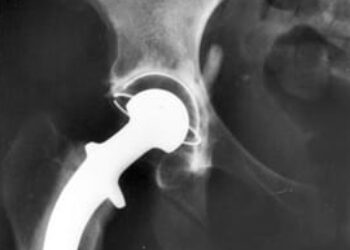Semaglutide may improve cardiovascular outcomes versus empagliflozin in patients with diabetes
1. In this retrospective cohort study, treatment with semaglutide resulted in nominally lower incidence of the composite of death, myocardial infarction, and stroke compared to empagliflozin in patients with type 2 diabetes.
2. Patients treated with dulaglutide and empagliflozin had similar rates of the composite outcome.
Evidence Rating Level: 2 (Good)
Study Rundown: Type 2 diabetes is a major risk factor for cardiovascular disease, which is the leading cause of mortality and morbidity in the United States. Patients with type 2 diabetes have significantly increased risk of major adverse cardiovascular events (MACE), which lead to poor patient outcomes and increased health care costs. Novel pharmacologic agents, such as glucagon-like peptide-1 receptor agonists (GLP-1 RAs), dipeptidyl peptidase-4 (DPP-4) inhibitors, and sodium-glucose cotransporter-2 (SGLT-2) inhibitors, have revolutionized diabetes management, with GLP-1 RAs and SGLT-2 inhibitors in particular demonstrating significant cardiovascular benefit. However, head-to-head analysis comparing the efficacy and safety profiles of agents in these two classes is limited. Hence, this study aimed to compare mortality and cardiovascular outcome risk in patients with type 2 diabetes treated with semaglutide or dulaglutide versus empagliflozin. Overall, it was found that treatment with semaglutide was associated with lower incidence of the composite of death, myocardial infarction, and stroke compared to empagliflozin, although this difference did not reach statistical significance. This apparent between-group difference was driven primarily by a decreased incidence of stroke and coincided with greater reductions in weight and glycated hemoglobin. Dulaglutide and empagliflozin exhibited similar incidence rates of the composite outcome. This trial was limited by residual confounding and a lack of data regarding cause-specific mortality. Nonetheless, these results served as evidence for a potential treatment advantage of semaglutide over empagliflozin.
Click to read the study in AIM
Relevant Reading: Empagliflozin, cardiovascular outcomes, and mortality in type 2 diabetes
In-Depth [retrospective cohort]: This multicenter retrospective observational cohort study emulated 2 target trials to compare the efficacy of semaglutide and dulaglutide versus empagliflozin on mortality and cardiovascular outcomes in patients with type 2 diabetes. Included patients were 45 years of age or older with type 2 diabetes who were treated with semaglutide, dulaglutide, or empagliflozin between January 1, 2019 to December 31, 2024. The primary outcome was defined as the composite of death, myocardial infarction, or stroke. Secondary findings were several individual end points as well as various combinations of composite outcomes. In the primary trial assessing 14,068 individuals receiving semaglutide versus 13,154 propensity score-matched individuals receiving empagliflozin, the incidence of the primary outcome was 1.9% versus 2.2% at 1 year, 3.7% versus 4.5% at 2 years, and 5.9% versus 6.9% at 3 years for the semaglutide-treated and empagliflozin-treated groups, respectively. The incidence adjusted for 1000 person-years was 20.99 and 23.56 respectively, resulting in a rate difference of -2.56 (95% confidence interval [CI], -5.56 to 0.44) and a hazard ratio (HR) of 0.89 (CI, 0.78 to 1.02). All secondary outcomes based on HRs favored the use of semaglutide. In the secondary trial, 6,093 individuals treated with dulaglutide were matched with the same number of individuals treated with empagliflozin. The incidence of the primary outcome was 2.1% versus 2.4% at 1 year, 5.1% versus 4.5% at 2 years, and 8.1% versus 7.8% at 3 years for the dulaglutide-treated and empagliflozin-treated groups, respectively. The incidence adjusted for 1000 person-years was 25.64 and 25.02 respectively (HR, 1.03; CI, 0.90 to 1.16). In summary, these trials demonstrated somewhat improved overall outcomes among individuals with type 2 diabetes treated with semaglutide, but not dulaglutide, compared to empagliflozin.
Image: PD
©2025 2 Minute Medicine, Inc. All rights reserved. No works may be reproduced without expressed written consent from 2 Minute Medicine, Inc. Inquire about licensing here. No article should be construed as medical advice and is not intended as such by the authors or by 2 Minute Medicine, Inc.








